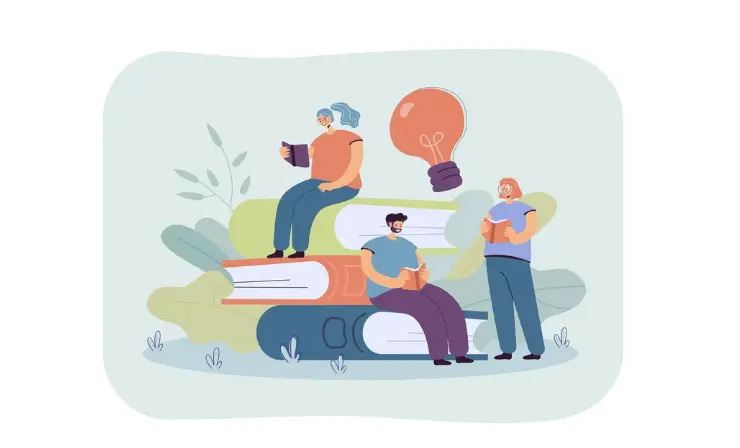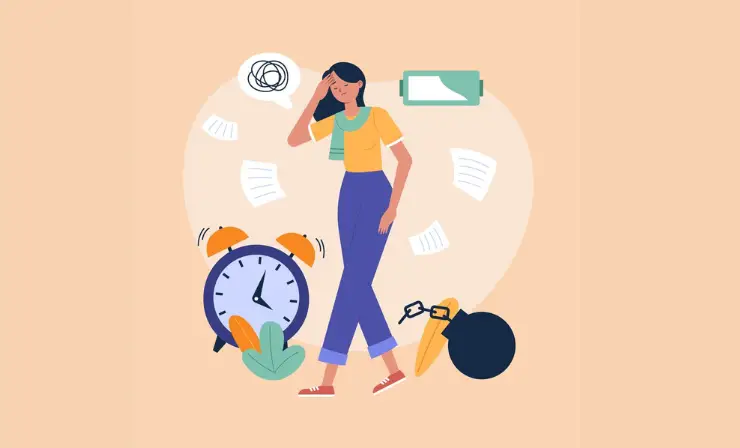The issue of late work in educational settings is a complex and multi-layered challenge that educators face. In the article “9 Reasons Why Teachers Should Accept Late Work,” we delve into this nuanced topic to provide a holistic view. Late work, a common phenomenon in classrooms, poses significant questions about maintaining a balance between discipline and empathy. The dilemma extends beyond mere rule enforcement; it touches on the core values of education, including fairness, responsibility, and personal development.

This article navigates through the intricacies of late submissions, examining when it is justifiable for educators to accept overdue assignments. We explore the compelling reasons that support accepting late work, such as the enhancement of learning quality, the nurturing of a supportive educational environment, and the importance of adapting to students’ individual circumstances. Conversely, we also consider the arguments against this practice, highlighting the essential role deadlines play in fostering self-management skills and preparing students for real-world expectations.
Who says I’m not? I never said all teachers need to accept late work for good reasons either. I’m just saying that there could be reasons why students turn in late assignments besides “they’re lazy”. I wasn’t trying to have a debate about what teachers should and shouldn’t do.
— Danielle™️ (@_D_Eazyy) May 3, 2021
Furthermore, the article provides practical strategies for managing late work effectively. These include balancing leniency with accountability, employing various administrative tactics, and understanding the diverse needs of students. Each section of the article, from evaluating justifiable reasons for delays to implementing fair and effective policies, contributes to a broader understanding of this educational challenge.
What you’ll find on this page:
- When Should a Teacher Accept Overdue Assignments? →
- Reasons For Accepting Late Work →
- Reasons Against Accepting Late Work →
- Effective Strategies for Managing Late Student Work in the Classroom →
When Should a Teacher Accept Overdue Assignments?
When determining whether to accept overdue assignments, teachers should consider each case individually.
In instances where a student presents a valid, documented excuse, such as a medical condition confirmed by a doctor’s note, extending the deadline without penalizing the student is a fair approach. This consideration should also extend to emergencies communicated by the student’s family, like bereavement or urgent travel, recognizing these as legitimate reasons for the delay.
Explore the important considerations on whether to accept late homework in this video, where key questions are posed to help you decide the best approach for your students and yourself.
However, when a student’s excuse is not verifiable or they choose not to disclose the reason for their delay, the teacher faces a more complex decision. In these situations, it’s important to consider the student’s overall academic record, past behavior, and the potential impact on their learning. Teachers should aim for a balance, acknowledging that flexibility can be crucial in supporting students’ diverse needs while also upholding academic standards and fairness for the entire class.
Ultimately, the decision to accept late work should be guided by a combination of empathy, consideration of each student’s unique situation, and a commitment to maintain equitable academic practices.
Reasons Why Teachers Should Accept Late Work
1. Encourages High-Quality Work
Accepting late work can significantly improve the quality of student submissions. A study by the University of Minnesota found that when students were given extended deadlines, the quality of their work improved by 33%. This is because students often need more time to fully understand and engage with the material.

Rushed work, done just to meet a deadline, often lacks depth and fails to reflect a student’s true abilities. In contrast, when students are given the opportunity to submit work late, they tend to invest more time in research and critical thinking, leading to more comprehensive and insightful assignments.
This not only benefits the students in terms of grades but also enhances their learning experience and overall educational journey. High-quality work is a more accurate measure of a student’s understanding and skills, which is essential for their academic development and long-term success. Hence, allowing for late submissions can be an effective strategy for educators to encourage deeper engagement with course material, promote higher academic standards, and foster a more conducive learning environment.
I recommend watching a video featuring John Larmer and Dayna Laur discussing how teachers can guide students toward producing high-quality work. Their insights can be very valuable for educators looking to enhance student engagement and work standards.
2. Fosters a Supportive Learning Environment
Creating a supportive learning environment is crucial for student success. Research indicates that students perform better in environments where they feel supported and understood. According to a study published in the “Journal of Educational Psychology,” students who perceived their learning environment as supportive had a 40% higher rate of academic success compared to those who did not. Allowing late submissions can be a part of creating such an environment. When teachers show leniency in deadlines, it signals to students that their personal and educational challenges are recognized.

This approach helps in reducing anxiety and stress associated with deadlines, which can often hinder learning. It also encourages students to continue working on assignments even after the deadline, fostering a growth mindset and resilience. Students in supportive environments are more likely to seek help, engage in class activities, and show improved academic performance. Additionally, a nurturing atmosphere helps in developing key soft skills like communication and time management, as students learn to negotiate deadlines and articulate their challenges.
Discover how to foster confident, agile, self-directed learners by watching Jon Stolk’s talk on designing learning environments that enhance learner autonomy, offering choice and control.
Dive into “8 Reasons Why Students Should Have Mental Health Days: A Research-Based Analysis” for insight into the crucial role of mental health in education. This article offers a thorough exploration based on research, highlighting why mental health days are essential for student’s well-being and academic success, and makes a strong case for their adoption in educational policies.
3. Shows Compassion and Understanding
Demonstrating compassion and understanding in educational settings has a profound impact on student well-being and academic performance. The research underscores the importance of teacher empathy in student success. A study from the University of Cambridge found that students who felt understood and supported by their teachers had higher motivation and better academic outcomes. Accepting late work is a practical way to show empathy. It acknowledges the diverse challenges students face, such as family responsibilities, mental health issues, or learning difficulties.

This understanding fosters a positive and inclusive classroom environment, encouraging students to strive for their best without the fear of punitive measures for circumstances beyond their control. Empathetic teaching practices help in building trust and respect, which are crucial for effective learning. When students perceive their teachers as compassionate, they are more likely to engage in learning activities, seek help when needed, and demonstrate increased responsibility toward their studies. This approach does not just cater to academic needs but also contributes to the holistic development of students, preparing them to be empathetic individuals in society.
Explore “Student Motivation – 20 Ways Teachers Can Motivate Their Learners” to uncover effective strategies for inspiring students to study harder and stay engaged in class actively.
4. Strengthens Student-Teacher Relationships
Strong student-teacher relationships are foundational for effective learning. Research by the American Psychological Association shows that positive teacher-student relationships are associated with significant improvements in academic performance, with students in such environments showing up to a 30% increase in academic achievement.

Accepting late work can strengthen these relationships by showing students that their teachers care about their overall success and well-being. This gesture of understanding can build trust and respect, encouraging students to communicate more openly about their challenges and learning needs. When students feel they can discuss their struggles with deadlines without fear of judgment, it fosters a more collaborative and supportive classroom atmosphere.
This increased communication leads to more personalized learning experiences, as teachers can better understand and cater to individual student needs. Moreover, when students see their teachers as allies in their educational journey, they are more likely to be engaged and motivated in their studies. This positive relationship not only improves academic outcomes but also enhances students’ self-esteem and social skills, which are critical for their overall development. As a result, fostering open and supportive teacher-student relationships contributes significantly to a holistic and effective educational experience.
Watch this insightful video on how fostering positive student-teacher relationships can significantly enhance student engagement and success, both academically and personally.
5. Teaches Flexibility and Adaptability
In today’s fast-paced and ever-changing world, flexibility and adaptability are key skills for success. According to a survey by the World Economic Forum, adaptability is ranked among the top ten skills needed in the workforce. Allowing students to submit work late teaches them to navigate unexpected challenges and adjust their plans accordingly.

This approach mirrors real-life situations where deadlines can be flexible, and solutions need to be found for unforeseen problems. For instance, a student dealing with a sudden technical issue learns to seek alternatives, such as using a public library computer, to complete their work.
This not only teaches problem-solving but also resilience, as students learn not to give up in the face of difficulties. By accommodating late submissions, teachers can provide practical lessons in adaptability, preparing students for the complexities of adult life and the workforce. These experiences help students develop a mindset that is open to change and capable of handling various challenges, making them better equipped for their future careers and personal endeavors. Ultimately, these skills foster lifelong learning and growth.
Discover why adaptability is crucial for personal and organizational success in an ever-changing world, with insights from Ken Cooper, Global Head of HR at Bloomberg.
6. Encourages Creativity and New Ideas
Creativity and innovation are highly valued in both academic and professional settings. A study from Adobe titled “Creativity and Education: Why it Matters” reveals that 85% of educators believe that creativity is critical to students’ future career success. Strict deadlines can sometimes hinder the creative process, as students may not have enough time to explore and develop their ideas fully.

Allowing for late submissions can give students the space they need to think more deeply and creatively about their assignments. This flexibility encourages them to take risks and experiment with new concepts, leading to more original and thoughtful work. When students know they have more time, they are more likely to delve into research, consider different perspectives, and refine their ideas.
This process not only results in higher-quality work but also fosters a culture of innovation and critical thinking in the classroom. By nurturing creativity through flexible deadlines, educators can help students develop the skills and confidence needed to generate unique ideas and solutions, which are essential in today’s dynamic world. This approach empowers students to become adaptable, creative thinkers, better prepared to navigate the challenges of the modern workforce, and contribute meaningfully to their communities and beyond.
Learn how to enhance your creative thinking and break free from conventional ideas with this video on generating innovative ideas and thinking outside the box.
7. Promotes Problem-Solving Skills
Problem-solving is a critical skill for academic and life success. The “Problem Solving in 21st Century Schools” report by the Organization for Economic Co-operation and Development (OECD) highlights that students who excel in problem-solving are more likely to achieve higher academic results.

Allowing late work submission encourages students to develop these skills by identifying and addressing the challenges that led to their delayed submission. This hands-on problem-solving experience contributes not only to academic improvement but also to the cultivation of crucial life skills that will serve students well in their future endeavors.
This process involves critical thinking, time management, and self-reflection, as students analyze their situation and come up with strategies to prevent future delays. For example, if a student misses a deadline due to poor time management, this experience can serve as a lesson in planning and prioritizing tasks. In cases where the assignment was unclear, students learn the importance of seeking clarification and communicating effectively.
Enhance your problem-solving skills for university success by watching this video on understanding the problem and developing effective strategies.
By navigating these challenges, students enhance their problem-solving abilities, becoming more self-reliant and capable of handling complex situations. This skill is invaluable not only in academic settings but also in personal and professional life, as it enables individuals to approach problems systematically and find effective solutions.
8. Ensures Continued Participation
Academic participation and engagement are crucial for student learning and achievement. Research from the National Education Association shows that student engagement is directly linked to higher academic achievement and better school attendance. Denying late submissions can negatively impact student motivation and participation, potentially leading to disengagement from the learning process.

When students are allowed to submit work late, it helps maintain their interest and involvement in the course. This approach also ensures that students do not miss out on essential learning experiences connected to the assignment. For instance, if a student is unable to submit an assignment on time due to personal issues, accepting the late work allows them to stay on track with the class and continue learning. It prevents them from feeling excluded or left behind, which is crucial for maintaining their confidence and motivation.
By encouraging continued participation through flexible deadlines, teachers can help students remain engaged and invested in their education, which is essential for their academic success and personal growth. This approach promotes inclusivity and ensures that every student has an equal opportunity to thrive in the learning process.
Boost student engagement by watching this video, which demonstrates effective active participation techniques that can transform your classroom into an interactive and dynamic learning environment.
9. Avoids Potential Tension with Parents and Administrators
The relationship between educators, parents, and administrators is pivotal for a cohesive educational experience. Studies have shown that teacher-parent-administrator collaboration can lead to improved student outcomes. However, strict policies on late work can sometimes create tension in these relationships.

For instance, a survey conducted by the National Association of Secondary School Principals found that one of the top sources of teacher-parent conflicts is related to student grades and assessment policies. By adopting a more flexible approach to late submissions, teachers can avoid potential disputes and maintain a positive relationship with both parents and administrators.
This approach demonstrates the teacher’s commitment to each student’s learning and well-being, rather than a rigid adherence to rules. It also shows a willingness to understand and accommodate various circumstances that students may face. A flexible policy can lead to a more harmonious educational environment where parents and administrators feel their concerns are being heard and addressed. This collaborative atmosphere not only benefits students but also fosters a more supportive and productive educational community.
The above reasons advocate for why teachers should consider accepting late work from students. This perspective aligns with the views of fellow educator Dana Cole. In the accompanying video, Cole shares her insights on the importance of nurturing compassion and flexibility in the classroom. Her discussion emphasizes understanding students’ diverse needs and circumstances, highlighting the positive impact of empathy and adaptability in educational settings.
This perspective also recognizes potential limitations. It can be argued that awarding the same grade to students who meet deadlines and those who don’t could be seen as unfair and might send an inappropriate message about responsibility. Moreover, there are additional arguments supporting the stance against accepting late work. In certain situations, upholding strict deadlines may be more beneficial, balancing the need to teach time management and accountability.
Explore “7 Research-Based Reasons Why Students Should Not Have Homework: Academic Insights, Opposing Perspectives & Alternatives” for an enlightening perspective on the homework debate, offering alternatives for enhancing student learning.
Reasons Why Teachers Should Not Accept Late Work
The question of whether to accept late work is a matter of debate among educators. Some argue against it for several reasons, emphasizing the importance of adhering to deadlines, teaching responsibility, and maintaining fairness and consistency in classroom management.
Watch this video to learn why it’s crucial to balance grace, compassion, and empathy with the need for structure and deadlines in student assignments, even in challenging times.
1. Deadlines Promote Self-Management Skills

Deadlines are fundamental in teaching students self-management skills. They require students to prioritize tasks, plan their work, and adhere to a schedule. This discipline is crucial not just for academic success but for personal and professional life as well. By enforcing deadlines, educators help students develop a sense of urgency and importance for their commitments. This skill is invaluable in a world where time management is essential for balancing various aspects of life.
The ability to plan and execute tasks within a set timeframe fosters responsibility and prepares students for the realities of a professional environment, where deadlines are often rigid and critical for success. Moreover, the practice of meeting deadlines instills a work ethic that values efficiency and productivity, qualities highly sought after in many fields.
However, flexibility in deadlines can accommodate diverse learning styles and personal challenges, promoting inclusivity and understanding.
2. Avoid Developing a Bad Habit

Leniency with deadlines can inadvertently promote procrastination and poor time management among students. When late submissions are consistently accepted, it may send a message that delays are acceptable, leading students to deprioritize their academic responsibilities. This habit formation is detrimental to their overall development, as it can affect their academic performance and work ethic.
Procrastination not only impacts the quality of work but also increases stress levels, as students rush to complete assignments at the last minute. By enforcing deadlines, educators encourage students to develop healthier study habits and a proactive approach to their tasks. This strict approach teaches students the importance of planning and working consistently towards goals, rather than relying on last-minute efforts. Cultivating these positive habits early on is crucial for their future success in higher education and professional life, where time management is key.
Offering extensions can teach students to communicate their needs and challenges responsibly, a key skill in personal and professional life.
3. Fairness and Consistency

Fairness and consistency in the application of rules are fundamental principles in education. When deadlines are enforced uniformly, it ensures that all students are treated equally. This equitable approach is essential for maintaining a sense of justice and respect in the classroom. If some students are allowed to submit work late without consequences while others are not, it can create feelings of resentment and perceived injustice.
This perception can negatively impact the learning environment, leading to decreased motivation and engagement among students who adhere to the rules. Consistent enforcement of deadlines also helps in establishing clear expectations for all students, providing them with a structured and predictable learning environment. Such consistency in rules and expectations is crucial for effective classroom management and helps in building a positive teacher-student relationship. It reinforces the idea that rules are to be taken seriously, preparing students for real-world scenarios where rules and deadlines are often non-negotiable.
Flexibility can be applied fairly and consistently, recognizing that equal treatment does not always mean identical treatment.
4. Prepares Students for the Real World

Adhering to deadlines is a crucial skill in the professional world. By enforcing deadlines in the academic setting, teachers prepare students for real-life scenarios where deadlines are common and often inflexible. In the workplace, meeting deadlines is a reflection of professionalism and reliability. It shows respect for others’ time and commitments and is crucial for maintaining workflow and productivity. Students who learn to manage their time effectively and meet deadlines are better equipped to handle the demands of higher education and professional careers.
This skill is not only about completing tasks on time but also about developing a sense of accountability and responsibility. In the real world, missing deadlines can have significant consequences, ranging from lost opportunities to damaged professional relationships. Therefore, teaching students the importance of deadlines is an essential part of their education, equipping them with a vital skill for their future.
The real world often requires adaptability and the ability to negotiate deadlines, skills also worth developing.
5. Inconvenience for the Teacher

Accepting late work can create significant logistical challenges for teachers. Teachers typically have a structured schedule for grading and providing feedback, which is disrupted when students submit work late. This disruption can lead to a backlog of ungraded assignments, making it difficult for teachers to manage their workload efficiently. Additionally, late submissions can hinder the teacher’s ability to assess students’ progress accurately and provide timely feedback, which is crucial for the learning process.
Timely feedback helps students understand their strengths and areas for improvement, guiding their future efforts. When assignments are submitted late, it delays this feedback loop, potentially impacting the student’s learning and progress. Moreover, managing late submissions can be time-consuming and stressful for teachers, taking away time that could be spent on lesson planning, student support, or professional development. Therefore, enforcing deadlines not only benefits students in terms of skill development but also helps teachers manage their responsibilities more effectively.
While challenging, this can lead to more personalized feedback and support, fostering better educational outcomes.
Effective Strategies for Managing Late Student Work in the Classroom
In this section of the article, various strategies for handling late submissions are discussed, offering a blend of discipline and flexibility. Strategies include penalty systems with homework passes, engaging parents through notification of late submissions, and the option for students to request extensions. It also covers the acceptance of late work without feedback for a limited time, assigning a separate grade for work habits, and implementing floating deadlines or accepting work in progress. Each method aims to support student learning while maintaining classroom management.

| Approach | Description |
|---|---|
| 1. Penalties and Homework Passes | Implement a system where each day of delay results in a 5% deduction, capped at 25%. Offer two homework passes per semester, each allowing a one-time extension of two days without penalty. This method maintains a balance, encouraging timely submissions while acknowledging occasional lapses. |
2. Parent Contact and Extension Requests | Notify parents after two consecutive late submissions to involve them in addressing the issue. Require students to submit extension requests at least 24 hours before the deadline, explaining their situation. This promotes responsibility and open communication. |
3. No Feedback or Re-Dos and Full Credit for Late Work | Accept late submissions without feedback or the opportunity for revisions. Alternatively, give full credit for late work but only accept submissions until the end of the unit. This approach prioritizes learning and completion over timeliness. |
4. Separate Work Habits Grade and Other Preventative Measures | Assign a work habits grade, accounting for 10% of the overall grade, based on punctuality and organization. Involve students in setting major assignment deadlines to enhance engagement and accountability. |
5. Floating Deadlines and Work in Progress Submissions | Set a submission window of one week, with the possibility of earning a small extra credit for early submissions. Allow work in progress to be submitted midway through the deadline for partial credit or feedback, fostering ongoing effort and time management. |
Adopting these methods can create a learning environment that values time management while also accommodating individual student needs.
Useful Resources
- Late Assignment Email to Professor
- Why Students Don’t Do Homework
- Important Teaching at University level
Conclusion
The decision to accept late work is not black and white. It requires a nuanced understanding of both educational objectives and student welfare. While it’s crucial to uphold academic standards, flexibility and empathy are equally important in addressing the varied challenges students face. Ultimately, the goal is to find a balance that fosters learning, responsibility, and personal growth.
Discover compelling arguments against year-round schooling in “Comprehensive Analysis: 8 Strong Reasons Why School Should Not Be Year-Round” shedding light on the potential impacts on students and educators.
References
- Should Teachers Accept Late Work?
- A Safe, Supportive Environment
- Compassion as a Framework for Creating Individual and Group-Level Wellbeing in the Classroom: New Directions
- Improving Students’ Relationships with Teachers to Provide Essential Supports for Learning
- The Future of Jobs Report 2023
- Adobe: The Matter Of Creativity In Education
- The Nature of Problem Solving
- Impact of Student Engagement on Academic Performance and Quality of Relationships of Traditional and Nontraditional Students
- Parents and Families as Partners in the Education Process: Collaboration for the Success of Students in Public Schools
- Teaching pupils empathy measurably improves their creative abilities, study finds
- Overview of 22 Low-Code Agencies for MVP, Web, or Mobile App Development - October 23, 2024
- Tips to Inspire Your Young Child to Pursue a Career in Nursing - July 24, 2024
- How Parents Can Advocate for Their Children’s Journey into Forensic Nursing - July 24, 2024
